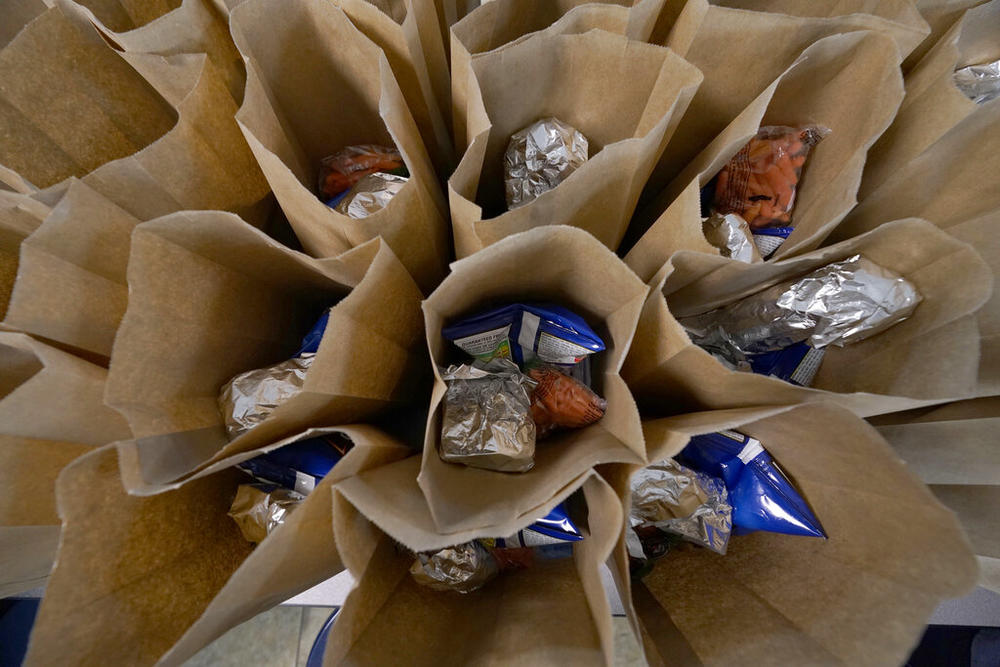
Caption
Bagged lunches await stapling before being distributed to students at Jefferson county's Tri-Plex Campus involving the students from the Jefferson County Elementary School, the Jefferson County Upper Elementary School and the Jefferson County Junior High School, March 3, 2021 in Fayette, Miss.
Credit: AP Photo/Rogelio V. Solis

